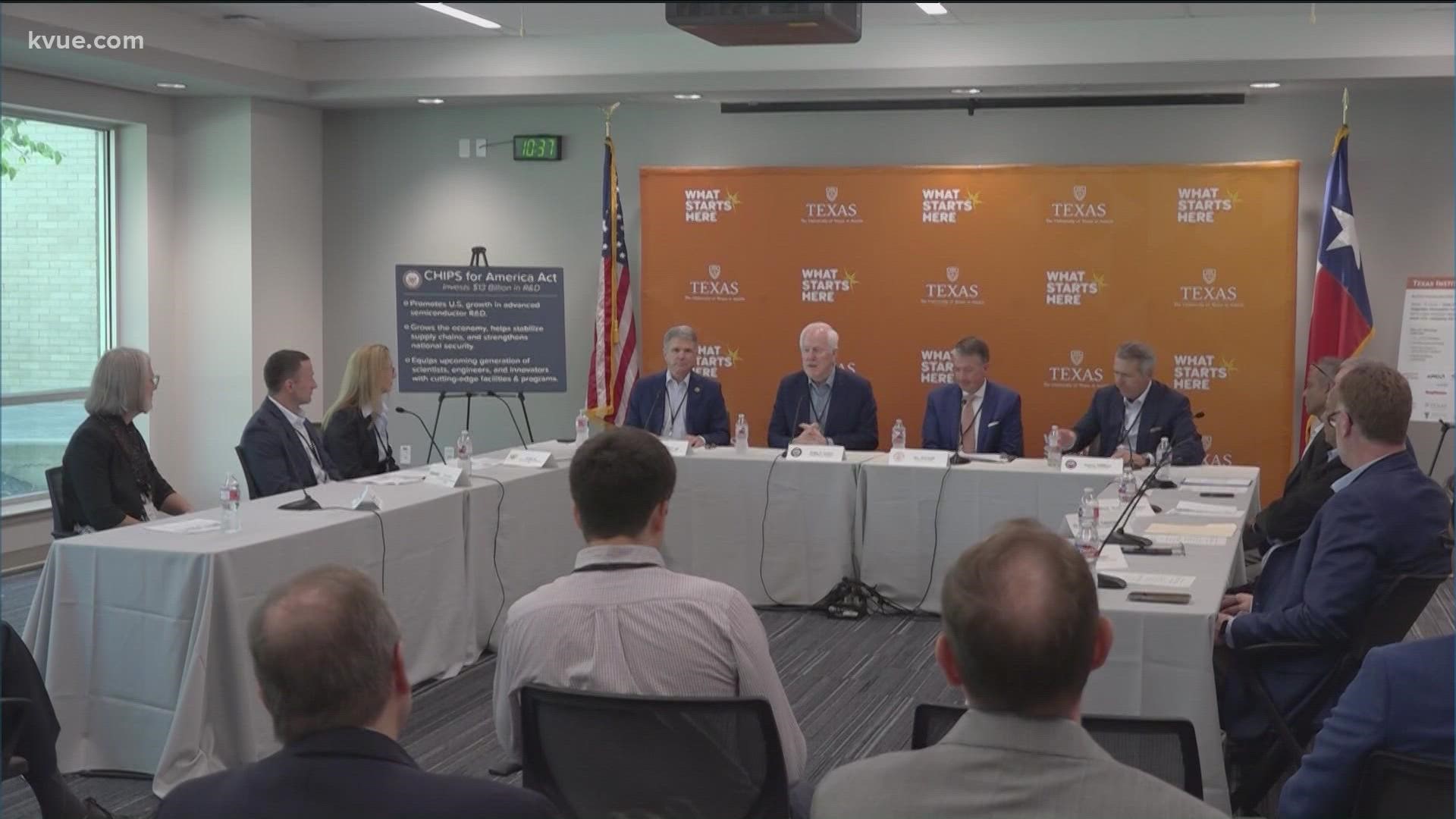AUSTIN, Texas — On Monday, U.S. Sen. John Cornyn (R-Texas) and U.S. Rep. Michael McCaul (R-Texas) visited University of Texas at Austin's J.J. Pickle Research Campus to meet with UT leaders and local businesses to discuss semiconductor manufacturing efforts.
Cornyn and McCaul participated in a roundtable discussion about UT's new public-private partnership to increase semiconductor research and development, newly named Texas Institute for Electronics, or TIE for short.
Both Cornyn and McCaul have worked over the past few years to create and pass legislation in Washington, D.C., that gives incentives for companies to create semiconductor facilities in the U.S., rather than in China.
"It's 30% more expensive to build a semiconductor fab here in the United States than Asia, that's why so many companies go there," Cornyn said during the roundtable.
Cornyn’s office said last year that, at one point, there were 17 planned semiconductor facilities in China and just one planned in the U.S. They said this issue is extremely important, especially with the semiconductor shortage we have been seeing for more than a year now.
TIE aims to put a greater focus on research and development of advanced semiconductors while also training people to join the workforce on the production side of the chip industry.
According to UT leaders at the roundtable discussion, workforce development may present a big challenge in the near future.
"You can build factories, but you need skilled workers to go with it," Dr. S.V. Sreenivasan, who oversees TIE, said. "That's the whole picture is R&D, technology development, building appropriate facilities that we need because these are facility intensive activities in manufacturing and then building the industry and university coalition to address R&D and workforce development."
In 2020, Cornyn and McCaul were behind the passage of the CHIPS for America Act to help restore semiconductor manufacturing in the U.S. They said their goals with that act are to create high-paying American jobs, help U.S. manufacturers with supply chain certainty and ensure the U.S. remains competitive globally in leading-edge technological innovation. The bill was enacted into law on Jan. 1, 2021. Funding for the program has stalled in Congress and has gone under numerous name changes.
In the coming weeks, Cornyn and various Senators and Representatives will meet in a conference committee to solve differences between their versions of the newest bill, America COMPETES Act, which would provide the funding for CHIPS.
CHIPS focuses on providing funding for incentives to bring semiconductor chip manufacturers to the United States. The funding would be $52 million total, with $13 million toward R&D specifically.
The Texas Institute for Electronics will potentially pursue funding in part from CHIPS Act programs, as UT says the program will address the needs of both industry and government and will help recruit, educate and train the next generation of highly-skilled industry innovators with cutting-edge facilities.
PEOPLE ARE ALSO READING:
- 100-mile trail planned to connect Austin to San Antonio enters next phase
- Central Texans experiencing sticker shock as 2022 property appraisals are sent out
- Home insurance rates are on the rise. Here's the reason according to one Austin agency
- Change to homestead exemption law causing confusion for some property owners

